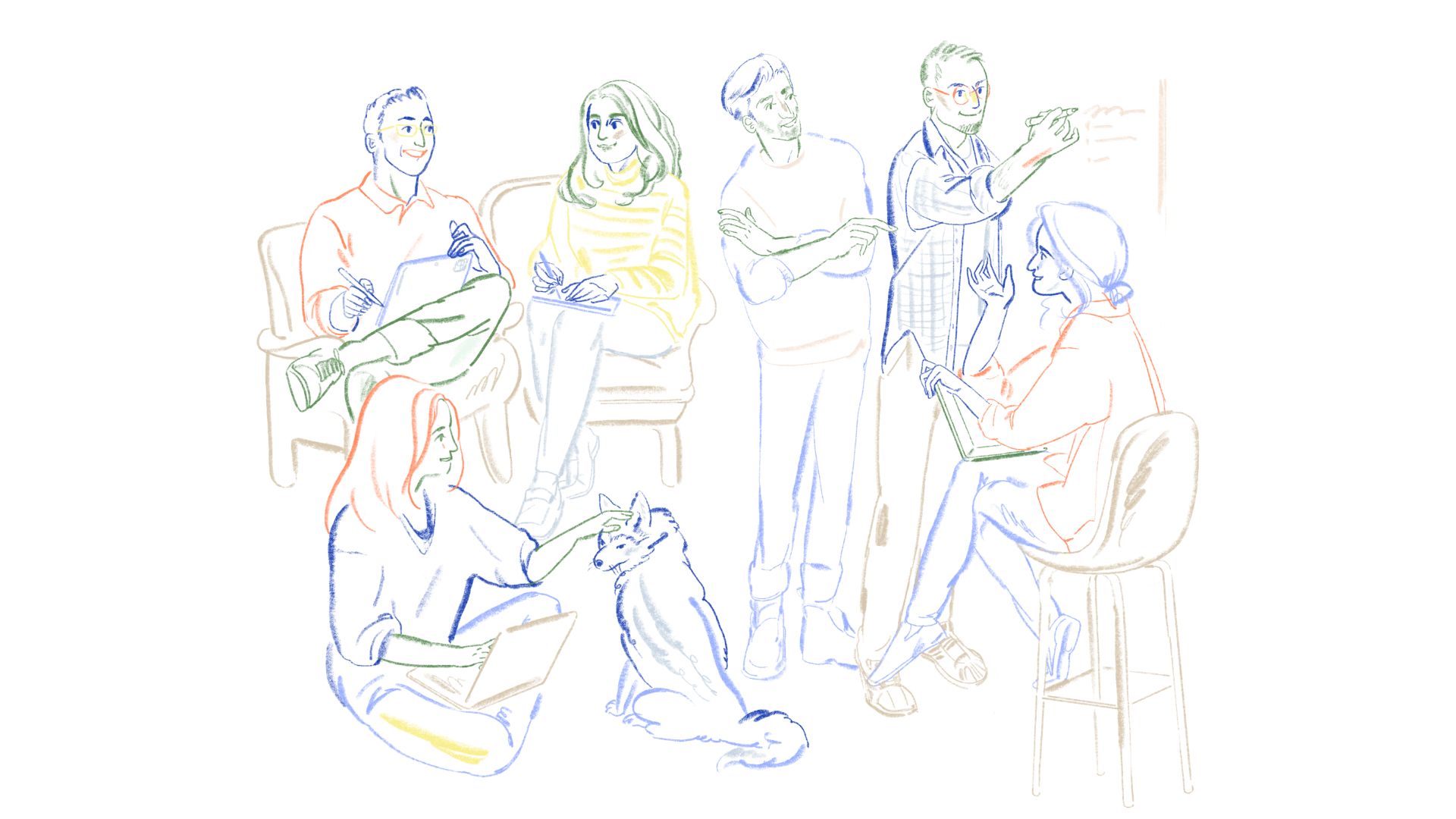Who Should Join SPC?
The member archetypes that benefit most from joining SPC—and when they should apply.

We’ve previously shared the traits we look for in people applying to SPC. But how do those characteristics manifest in the strongest applicants? Who tends to get the most out of their time in the community? Is SPC the best place for you to navigate -1 to 0?
To help answer these questions, here are five member profiles we think benefit most from joining SPC.
The Repeat Founder
Nothing prepares you to start your next company like starting your last company. Anyone who has been through that process already knows what we spend a lot of time preaching: -1 to 0 is a distinct stage of company building with its own challenges and best practices. It’s no surprise this is one of the most common member profiles at SPC.
The repeat founder often gravitates to the community’s learning programing in search of new opportunities to apply their experienced skillset. They also tend to be the quickest to test ideas and seek rapid feedback from other members. A talent-dense community is an unbeatable accelerant.
Ciro Greco and Jacopo Tagliabue illustrate this profile. Having co-founded a company that was later acquired, this deeply technical duo joined SPC to prepare for round 2. Through a multi-week learning forum on LLMs and regular working sessions with members in our New York space and beyond, Ciro and Jacopo honed their intuitions for where there was opportunity. For them, the community is idea lab, design partner, and customer network all in one.
The Early Employee
Many people avoid the -1 to 0 stage of exploration and conviction-building for fear of what comes after: 0 to 1, i.e. execution. The difficulty of turning an idea into a company can be a powerful deterrent. But experience in the trenches at an early stage startup—and especially one that survived to reach later stages—prepares the early employee to dive into -1 to 0. They’ve internalized what’s possible.
This archetype often joins SPC specifically to develop -1 to 0 skills like ideation, market sizing, and storytelling. They congregate in our tactical programming like workshops and Startup Squad (a multi-week tactical bootcamp for starting a venture-scale company that we adapted from the Founder Fellowship). And they collaborate—a lot. Early employees know better than most how much growth opportunity there is in a tight-knit group of unusually driven and talented people.
Anurag Goel set the standard here. Employee #8 at Stripe, Anurag went on to become one of the earliest members of SPC, exemplifying how early employee types thrive in the community. He helped define SPC’s approach to -1 to 0 and shaped our culture of building. Now he draws a direct line between hacking on projects with other SPC members and Render, the company he founded out of the community.
The Technical Leader
Another profile we look for is the former leader of a technical team at a midsize or large company. These members understand the tight iteration loops that enable rapid, evidence-based exploration. Their technical skills and bias for building make them well-suited for SPC’s culture of learning through doing. And, critically, they know how to rally a team to produce a working prototype. The technical leader is a regular in our builder events like hackathons and Rubber Duckies feedback sessions. It’s common to find them huddled in a corner of one of SPC’s community spaces, pouring over lines of code with another member—building, building, building.
Just like Sam Whitmore. Pre-SPC, Sam was Head of Engineering at Kensho. Her exceptional technical abilities and enthusiasm for building has made her a fixture in community hackathons and demos. She eventually set sights on starting a venture-scale company and carried her relentless prototyping pace into the Founder Fellowship.
The Domain Expert
Domain experts have been a critical part of SPC since our founding. Often coming from academia or research backgrounds at deeply technical organizations, these experts are well-positioned to become intellectual leaders in the community. They regularly participate in our learning programming and lead new forums on their area of expertise.
Domain experts also tend to have the most diverse paths through and out of SPC. Some join to learn about company building and practical applications for their domain knowledge. Sonia Joseph, an AI researcher, came to SPC interested in learning the mechanics of startups. She also used her time in the community to develop a first-of-its-kind learning curriculum on Artificial General Intelligence.
Other experts use SPC to explore new ways to synthesize their expertise. Temina Madon brought years of policy experience in government, academia, and non-profits into SPC. She took so well to the our approach that she became one of our Heads of Community. Her own -1 to 0 journey eventually produced The Agency Fund, a philanthropic initiative SPC now partners with for our Social Impact Fellowship.
The Generally Exceptional
We always leave room for outstanding individuals with a track record of success. Sometimes these are exceptional generalists who want to learn from a highly technical community. Other times it’s a world-class specialist in a different field than those that generally produce the other archetypes, but who wants to apply the SPC approach to their own -1 to 0 process. While we are primarily a technical community, sometimes talent renders skillset irrelevant. Writers, creatives, intellectuals, athletes—everyone faces -1 to 0 at some point, and we love helping ambitious people figure it out.
Ashton Eaton is a great example. The two-time Olympic gold medal decathlete joined SPC after retiring from the sport. He used his time in the community to pick up technical skills, setting him on the path to becoming a mechanical engineer. Ashton graduated from SPC to work on computer vision for tracking athletes’ bodies in motion—because the elite athlete never really stops.

When Should You Apply?
Just as important as the question of who is the question of when. SPC is a community dedicated to the -1 to 0 phase of your career, which we broadly define as when you’ve set yourself to figuring out what your next company, career path, or pursuit will be. This process should be intentional. You may wander, but you should be purposeful about which paths you take. Give the journey the attention it deserves.
If you need a break to decompress from your last job, we encourage you to take it before applying. In almost all cases we expect members to have left full time employment by the time they join the community (though many take on part-time contracting work to extend their runway). The best time to apply is when you're rested and ready to discover the next stage of your life's work.
-1, -0.9, -0.8, -0.7, -0.6, -0.5…
At the risk of muddying the waters, it’s worth noting that members join us from points within -1 to 0. Some people enter SPC already set on starting a company. They know the shape of their next endeavor even if they haven’t filled in the details, so you could say they’re at -0.5. Others are closer to -1, not quite sure what their next journey will be but ready to find out. And still more come to us with a specific project they want to complete or a hypothesis they want to test, often as a way of trialing a major career pivot—they’re staring down 0, looking for the go/no-go signal.
In each of these scenarios there are varying degrees of uncertainty. It’s common for the journey from -1 to 0 to feature detours, backtracks, and dead ends. That’s what makes it frustrating—that’s why SPC exists. In the end, everyone who joins South Park Commons is searching for the same thing: conviction in what’s next.
Ready to get from -1 to 0? We want to meet you! Apply for community membership here.
